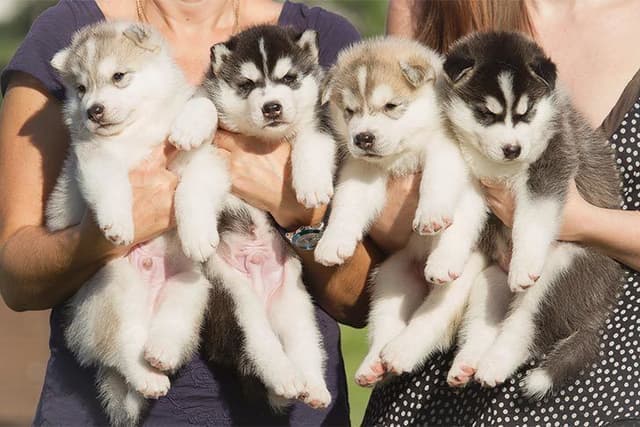Unique Meanings, Pronunciations, and Cultural Insights
The allure of Japanese boy names has captivated parents and enthusiasts worldwide. There's an undeniable charm in their melodic sounds and, more profoundly, in the beautiful meanings they often carry. These names are not mere labels; they are frequently imbued with parental wishes, reflections of the natural world, or the embodiment of cherished virtues. This global appeal stems not just from a desire for something different, but increasingly from an appreciation for names that offer depth and positive connotations. The "beauty of their meanings" serves as a compelling invitation, promising a journey of discovery into a rich cultural tradition, making the process of choosing a name an exploration of values.
This post delves into the fascinating world of Japanese boy names, offering insights into their formation, common themes, and a diverse selection of options.
How Japanese Names Work

Understanding Japanese names requires appreciating their structure, which is rooted in the use of kanji—characters that each carry distinct meanings. Parents can combine different kanji to create names with specific significance, blending artistry and personal expression in a way that sets Japanese naming apart from many Western traditions. This allows for names that are not only beautiful in sound but also rich in meaning, often reflecting the hopes and aspirations parents hold for their children.
Pronunciation in Japanese names is closely tied to the chosen kanji, but the language’s flexibility allows for multiple readings of a single character and the same pronunciation using different kanji. This means a name can be traditional yet unique, as the same sound might represent a variety of meanings. Typically, Japanese names are written with the family name first, followed by the given name, and while kanji are most common, hiragana or katakana may also be used for stylistic or personal reasons.
Popular Themes in Japanese Boy Names

Japanese boy names often draw from a rich tapestry of cultural and natural elements. Several popular themes emerge, reflecting enduring values and aesthetics:
- Nature: Many Japanese boy names are inspired by elements like plants, animals, the sky, sea, and mountains, reflecting a deep reverence for the natural world rooted in Shinto beliefs. These names express the cultural value of harmony with nature and often carry poetic or seasonal imagery.
- Virtues and Aspirations: Names frequently embody qualities such as wisdom, courage, kindness, and honesty, expressing parental hopes for their child’s character. This tradition highlights the importance of personal growth and societal harmony, influenced by Confucian ideals.
- Strength and Power: Names signifying physical or inner strength, bravery, and leadership are common, often with heroic or warrior associations. Such names reflect traditional ideals of masculinity, resilience, and the aspiration to overcome challenges.
- Light and Brightness: Names associated with the sun, light, and brilliance symbolize hope, intelligence, and a positive future. They often carry both literal and metaphorical meanings, making them aspirational choices for many families.
- Seasons and Birth Order: Names may reference seasons, marking the time of birth or its qualities, or indicate birth order (like first or second son). While season-based names remain popular, birth order names are less common today, reflecting a shift toward individuality.
Top Trending Japanese Boy Names
- Aito (愛斗): Beloved child; love dipper.
- Aki (明/秋): Bright; autumn; clear.
- Akihiko (明彦): Bright prince.
- Akio (昭夫): Bright man; luminous hero.
- Akira (明): Bright; clear; wisdom.
- Aoi (葵/蒼い): Hollyhock flower; blue.
- Aoki (青木): Green tree.
- Aoto (蒼人): Blue person; constellation.
- Arata (新): Fresh; new.
- Asahi (朝日): Morning sun; sunlight.
- Benjiro (弁治郎): One who enjoys peace.
- Botan (牡丹): Peony flower.
- Chikao (千 Khao): Clever; wise person.
- Chikyu (地球): Earth; green ground.
- Daichi (大地): Great land; great wisdom.
- Dai (大): Large; great.
- Daigo (醍醐): Essence; true meaning.
- Daiki (大輝/大樹): Great radiance; great tree.
- Daisuke (大輔): Great help; great friend.
- Dan (暖): Warmth.
- Eiji (永次/栄治): Eternity; prosperous rule.
- Eita (瑛太): Crystal; excellent.
- Eito (瑛斗): Precious; big dipper.
- Endo (遠藤): Distant wisteria; roadside.
- Enkai (遠海): Distant sea; deep ocean water.
- Fudo (不動): Immovable; steadfast.
- Fuji (富士/藤): Peerless; wisteria.
- Fujin (風神): God of wind.
- Fumihiko (文彦): Scholarly prince.
- Fumio (文雄): Scholarly hero.
- Fuyu (冬): Winter.
- Fuyuki (冬樹): Winter tree.
- Gen (源): Source; origin.
- Genji (源氏): Source clan; historical.
- Genki (元気): Energy; vitality.
- Giichi (義一): Righteous one.
- Gin (銀): Silver.
- Goro (五郎): Fifth son.
- Hachiro (八郎): Eighth son.
- Hajime (元/肇): Beginning; origin.
- Hakaku (白鶴): White crane.
- Haru (春/陽): Spring; sunlight.
- Haruki (春樹/晴輝): Spring tree; shining sun.
- Haruma (晴真): Clear truth; spring truth.
- Haruto (陽翔/晴斗): Soaring sun; sunny dipper.
- Haruya (晴也): Clear sky; to be clear.
- Hayate (颯): Sudden, quick wind.
- Hayato (隼人): Falcon person.
- Hibiki (響): Echo; sound.
- Hideaki (英明): Excellent brightness.
- Hideki (英樹): Excellent tree.
- Hideo (英夫): Excellent man; hero.
- Hikaru (光/輝): Light; radiance.
- Hinata (陽向/日向): Facing the sun; sunny place.
- Hiro (浩/大): Generous; prosperous; big.
- Hiroaki (宏明): Broad brightness.
- Hiroki (大樹/宏樹): Great tree; broad tree.
- Hiroshi (寛/浩): Generous; broad.
- Hiroto (大翔/博人): Big flight; broad person.
- Hisashi (久志): Long-lasting aspiration.
- Hisoka (密): Secret; reserved.
- Hitoshi (均/仁): Even; benevolence.
- Hokuto (北斗): Big Dipper; North Star.
- Homura (炎/焔): Flame; blaze.
- Hoshi (星): Star.
- Hotaru (蛍): Firefly.
- Ichiro (一郎): First son.
- Isamu (勇): Courage; bravery.
- Isao (功): Merit; achievement.
- Issei (一誠): Sincere one; first-born.
- Itsuki (樹): Tree.
- Iwao (巌): Rock; crag.
- Izumi (泉): Spring; fountain.
- Jin (仁): Benevolence; humanity.
- Jiro (次郎): Second son.
- Jun (純/順): Pure; obedient.
- Junpei (淳平): Pure; peaceful.
- Juro (十郎): Tenth son.
- Kaede (楓): Maple tree.
- Kai (海/櫂): Sea; ocean; oar.
- Kaito (海斗/快斗): Sea; Big Dipper.
- Kaiyo (海洋): Ocean.
- Kakeru (翔/駆): To soar; to run.
- Kane (鐘/兼): Bell; concurrent.
- Kaoru (薫): Fragrance.
- Katashi (堅): Firmness; hardness.
- Katsu (勝): Victory.
- Katsumi (克己/勝美): Self-control; victorious beauty.
- Katsuo (勝男): Victorious man.
- Kazuhiko (和彦): Harmonious prince.
- Kazuhiro (和宏): Harmonious breadth.
- Kazuki (一輝/和希): One radiance; harmonious hope.
- Kazuma (和真): True harmony.
- Kazuo (和夫): Harmonious man.
- Kazuyuki (和幸): Harmonious happiness.
- Kei (圭/慧): Square jewel; wisdom.
- Keiji (啓司): Enlightened ruler.
- Keisuke (圭介/啓介): Jewel helper; enlightened helper.
- Keita (啓太): Enlightened and big.
- Ken (健/賢): Healthy; strong; wise.
- Kenichi (健一): Strong one.
- Kenji (健二/賢治): Strong second son; wise ruler.
- Kenshin (謙信): Humble trust.
- Kenta (健太): Healthy and big.
- Kentaro (健太郎): Healthy first son.
- Kenzo (健三/賢造): Healthy third son; wise creator.
- Kichiro (吉郎): Lucky son.
- Kin (金): Gold.
- Kiyoshi (清/潔): Pure; clean.
- Kota (康太/幸太): Peaceful and big.
- Kou (光/幸): Light; happiness.
- Kouhei (康平/航平): Peaceful level; navigating peace.
- Kousei (光生/康星): Light of life; healthy star.
- Kouta (康太): Great peace.
- Makoto (誠/真): Sincerity; truth.
- Mamoru (守): To protect; guard.
- Manabu (学): To learn; study.
- Masa (正/雅): Correct; just; elegant.
- Masaaki (正昭): Correct brightness.
- Masahiko (正彦): Correct prince.
- Masahiro (正洋): Correct ocean.
- Masaki (正樹): Correct tree.
- Masao (正男): Correct man.
- Masaru (勝/優): Victory; gentle.
- Masashi (正志): Correct aspiration.
- Masato (正人): Correct person.
- Masayoshi (正義): Justice.
- Masayuki (正幸): Correct happiness.
- Minato (湊/港): Harbor; port.
- Minoru (実/稔): Fruit; harvest.
- Mitsuaki (光昭): Shining brightness.
- Mitsuo (光男): Shining man.
- Mori (森): Forest.
- Morio (森男): Forest man.
- Nagi (凪): Calm; lull.
- Nao (直/尚): Honest; esteemed.
- Naoki (直樹/尚希): Honest tree; esteemed hope.
- Naoto (直人/尚登): Honest person; esteemed ascent.
- Natsuki (夏樹): Summer tree.
- Natsuo (夏生): Birth of summer.
- Nobu (信/延): Trust; faith; to prolong.
- Nobuo (信夫): Trusting man.
- Nobuyuki (信幸): Trustworthy happiness.
- Rai (雷/頼): Thunder; trust.
- Raiden (雷電): Thunder and lightning.
- Rei (怜/礼): Wise; gratitude.
- Ren (蓮/漣): Lotus; ripple.
- Renji (蓮司): Lotus director.
- Renzo (廉造): Upright creator.
- Riku (陸): Land.
- Rikuto (陸人): Land person.
- Rin (凛/林): Dignified; forest.
- Ritsu (律/立): Law; discipline.
- Ryo (涼/亮): Cool; clear; bright.
- Ryohei (涼平): Refreshing peace.
- Ryota (涼太): Refreshing and big.
- Ryu (竜/龍): Dragon.
- Ryuji (竜二): Dragon second son.
- Ryunosuke (龍之介): Dragon helper.
- Ryusei (流星): Shooting star.
- Ryuto (竜人): Dragon person.
- Saburo (三郎): Third son.
- Sadao (貞雄): Faithful hero.
- Satoshi (聡/智): Wise; intelligent.
- Seiji (誠二): Sincere second son.
- Seiichi (誠一): Sincere one.
- Shigeru (茂): Luxuriant; growing.
- Shin (真/新/信): True; new; faith.
- Shinichi (真一): True one.
- Shinji (真司): True director.
- Shinsuke (真介): True helper.
- Shiro (四郎): Fourth son.
- Sho (翔/奨): To soar; encourage.
- Shohei (翔平): Soaring peace.
- Shota (翔太): Soaring and big.
- Shun (駿): Swift horse; talented.
- Shunsuke (俊介): Talented helper.
- Sora (空/昊): Sky; vast sky.
- Sota (颯太): Sudden wind and big.
- Susumu (進): To advance; progress.
- Tadao (忠雄): Loyal hero.
- Tadashi (正/忠): Correct; loyal.
- Taichi (太一): Big one.
- Taiga (大河): Big river.
- Taiyo (太陽): Sun.
- Taka (鷹/貴): Hawk; noble.
- Takahiro (貴大): Noble and great.
- Takao (孝雄): Filial hero.
- Takashi (隆): Prosperous.
- Takehiko (武彦): Warrior prince.
- Takeo (武雄): Warrior hero.
- Takeshi (武): Warrior; fierce.
- Takumi (匠): Artisan; craftsman.
- Takuya (拓也): Pioneer to be.
- Tamotsu (保): To protect; maintain.
- Taro (太郎): Eldest son.
- Tasuku (助): To help; assist.
- Tatsu (竜/達): Dragon; to attain.
- Tatsuya (竜也): Dragon to be.
- Tenma (天馬): Heavenly horse; Pegasus.
- Teru (輝): To shine; glitter.
- Tetsuya (哲也): Wise to be.
- Tomohiko (智彦): Wise prince.
- Tomoki (智樹): Wise tree.
- Tomoya (智也): Wise to be.
- Toru (徹/透): To penetrate; transparent.
- Toshi (聡/俊): Wise; talented.
- Toshio (俊夫): Talented hero.
- Toshiyuki (敏幸): Agile happiness.
- Tsukasa (司): Director; ruler.
- Tsuki (月): Moon.
- Tsuyoshi (剛): Strong; sturdy.
- Umi (海): Sea; ocean.
- Wataru (渉): To cross over; ford.
- Yamato (大和): Great harmony.
- Yasuo (康夫): Peaceful man.
- Yasuhiro (康弘): Peaceful breadth.
- Yasushi (靖): Tranquil; peaceful.
- Yoichi (陽一): Sun one.
- Yori (頼): To rely on.
- Yoshi (吉/良): Good luck; virtuous.
- Yoshiaki (義昭): Righteous brightness.
- Yoshihiko (義彦): Righteous prince.
- Yoshio (義雄): Righteous hero.
- Yoshiro (義郎): Righteous son.
- Yoshito (義人): Righteous person.
- Yoshiyuki (義行): Righteous journey.
- Yota (陽太): Sun and big.
- Yu (優/勇): Gentle; superior; courage.
- Yudai (雄大): Grand; magnificent.
- Yuichi (勇一): Courageous one.
- Yuji (勇二): Courageous second son.
- Yuki (雪/幸/勇気): Snow; happiness; courage.
- Yukio (雪男): Snow man.
- Yuma (勇真): True courage.
- Yusuke (勇助): Courageous helper.
- Yuta (勇太): Courageous and big.
- Yutaka (豊): Abundant; bountiful.
- Yuto (悠斗): Permanent dipper.
- Zen (禅/善): Zen; goodness.
Tips for Choosing a Japanese Boy Name
Choosing a name from another culture is an exciting journey. For those considering a Japanese name for their son, a few practical tips can help ensure the choice is respectful, meaningful, and fitting. The most culturally respectful approach often involves prioritizing the meaning and appropriate kanji selection over simply finding a Japanese-sounding name, as this demonstrates a deeper appreciation for the naming tradition itself. Effective pronunciation involves not just articulating sounds correctly but also understanding basic Japanese phonology to avoid heavy anglicization. Ultimately, choosing a Japanese name as a non-Japanese person is a balancing act between personal preference, cultural appreciation, and the practicalities of the child living in potentially multiple cultural contexts.

Here are some considerations:
- Prioritize Meaning and Kanji: Start by thinking about the qualities, hopes, or imagery the name should convey. Then, research kanji that embody these meanings. This approach aligns with traditional Japanese naming practices and ensures the name has depth. Native Japanese speakers often inquire about the kanji and their significance when hearing a Japanese name, so being able to explain this shows cultural understanding.
- Consider Pronunciation for All Audiences: Say the name aloud. How does it sound with the family surname? Is it reasonably easy for non-Japanese speakers to pronounce? While authenticity is key, consider the child's daily life in a multicultural context. Listen to native pronunciations where possible; many online resources offer audio clips. Japanese pronunciation generally features even stress across syllables.
- Research Cultural Nuances and Respect: Understand that names carry cultural weight. Avoid names that might have unintended negative connotations, sound like problematic words in Japanese or other languages familiar to the family, or are overly sacred or unusual (e.g., names of high deities, unless there is a specific, well-understood connection). When in doubt, consulting with native speakers or reliable cultural resources is advisable.
- Balance Uniqueness with Practicality: While a unique name can be appealing, ensure it is not so obscure (in kanji or reading) that it causes constant confusion or difficulty for the child or others. Aim for a name that is distinctive yet recognizable and relatively easy to write or explain if needed.
- Think About the Name's Overall Impression: Consider the feeling or image the name projects. Does it sound strong, gentle, bright, traditional, or modern? Ensure this aligns with the hopes for the child. Some names, like traditional "Samurai names," can convey an impression of depth and character.
Conclusion
Japanese boy names encompass a wide range of beauty, diversity, and deep meanings, often inspired by nature, strength, or virtue. Each name tells a unique story and reflects cultural values, making the process of choosing one a meaningful journey. The tradition of Japanese naming is rich and artistic, offering options that are both personal and symbolic. These names serve as more than identifiers—they embody cultural heritage and personal identity. Exploring them provides insight into a venerable and inspiring tradition.
Works cited
- Japanese names - Japan Guide, accessed June 6, 2025, https://www.japan-guide.com/e/e2271.html
- The Guide to Japanese Names - Superprof, accessed June 6, 2025, https://www.superprof.co.nz/blog/understand-name-japanese/
- Japanese name - Wikipedia, accessed June 6, 2025, https://en.wikipedia.org/wiki/Japanese_name
- Choosing a Japanese Name for Your Trip: A Cultural Guide, accessed June 6, 2025, https://www.iroamly.com/tr/japan-travel/japan-names.html
- 110+ Cool Japanese Boy Names & Meanings - Yahoo, accessed June 6, 2025, https://www.yahoo.com/lifestyle/110-cool-japanese-boy-names-170900904.html
- Japanese First Names and Meanings (in 2025) - FamilyEducation, accessed June 6, 2025, https://www.familyeducation.com/baby-names/first-name/origin/japanese
- 200+ Japanese Boy Names & Their Meaning - Parenting Firstcry, accessed June 6, 2025, https://parenting.firstcry.com/articles/75-best-japanese-names-for-baby-boys/
- 34 Strong & Stylish Japanese Boy Names for Your Son - Cozycove Diapers, accessed June 6, 2025, https://acozyfuture.com/blogs/baby-names/34-strong-stylish-japanese-boy-names-for-your-son
- Japanese Girl Names and Japanese Boy Names ... - Happiest Baby, accessed June 6, 2025, https://www.happiestbaby.com/blogs/pregnancy/japanese-baby-names
- Haruto and Tsumugi: Japan's Top 2024 Baby Names | Nippon.com, accessed June 6, 2025, https://www.nippon.com/en/japan-data/h02237/
- www.nihongomaster.com, accessed June 6, 2025, https://www.nihongomaster.com/japanese/dictionary/word/138304/dan-%E6%9A%96-%E7%85%96-%E3%81%A0%E3%82%93#:~:text=Meaning%20of%20%E6%9A%96%20%E3%81%A0%E3%82%93%20in,)%20(futsuumeishi)%20warming%3B%20warmth
- Hinata - Wikipedia, accessed June 6, 2025, https://en.wikipedia.org/wiki/Hinata
- Hinata (ひなた) | Beyond Sakura and Hiroshi - WordPress.com, accessed June 6, 2025, https://beyondsakuraandhiroshi.wordpress.com/2021/01/16/hinata/
- Aoi (name) - Wikipedia, accessed June 6, 2025, https://en.wikipedia.org/wiki/Aoi_(name)
- Ao : Meaning and Origin of First Name | Search Family History on Ancestry®., accessed June 6, 2025, https://www.ancestry.com/first-name-meaning/ao
- Basics of Japanese Names: How They Are Chosen, Written, and Read - Babel Street, accessed June 6, 2025, https://www.babelstreet.com/blog/the-basics-of-japanese-names-how-they-are-chosen-written-and-read
- Ritsu - Wikipedia, accessed June 6, 2025, https://en.wikipedia.org/wiki/Ritsu
- Ren (れん) | Beyond Sakura and Hiroshi - WordPress.com, accessed June 6, 2025, https://beyondsakuraandhiroshi.wordpress.com/2019/10/25/ren/
- Your Simple Guide to Choose a Cute Japanese Name - LingoDeer, accessed June 6, 2025, https://blog.lingodeer.com/japanese-name/
- beyondsakuraandhiroshi.wordpress.com, accessed June 6, 2025, https://beyondsakuraandhiroshi.wordpress.com/2019/04/28/hayate/#:~:text=Etymology%20and%2For%20ways%20to%20write%3A&text=Nowadays%2C%20as%20a%20name%2C%20it,referring%20to%20a%20peregrine%20falcon.
- hayate | Beyond Sakura and Hiroshi - WordPress.com, accessed June 6, 2025, https://beyondsakuraandhiroshi.wordpress.com/tag/hayate/
- Japanese Names, Use, Page 1 - BabyNames.ch, accessed June 6, 2025, https://www.babynames.ch/Info/Language/laJapanese
- Male Name Minato - BabyNames.ch, accessed June 6, 2025, https://www.babynames.ch/Info/Name/naMinato
- Yōta - Wikipedia, accessed June 6, 2025, https://en.wikipedia.org/wiki/Y%C5%8Dta
- Taiyō (たいよう) - Beyond Sakura and Hiroshi - WordPress.com, accessed June 6, 2025, https://beyondsakuraandhiroshi.wordpress.com/2019/07/07/taiyo/
- Japanese American boy names : r/namenerds - Reddit, accessed June 6, 2025, https://www.reddit.com/r/namenerds/comments/1c6ohbv/japanese_american_boy_names/
- Choosing a Japanese name, accessed June 6, 2025, https://www.turning-japanese.info/2013/01/choosing-japanese-name.html
- Japanese Boy and Girl Names for Babies and Children - Moonboon, accessed June 6, 2025, https://moonboon.com/blogs/baby-names/japanese-names
- 200 Japanese Baby Names (With Meanings) - Parade, accessed June 6, 2025, https://parade.com/1175994/marynliles/japanese-baby-names/
- Moms should not miss!! Tips for Common Japanese Boy Names | Be ..., accessed June 6, 2025, https://beasamurai.me/2019/02/23/moms-should-not-miss-tips-for-common-japanese-boy-names/
- How to make a Japanese name that is authentic and cool to brag? | Be a Samurai, accessed June 6, 2025, https://beasamurai.me/2019/03/15/how-to-make-a-japanese-name-that-is-authentic-and-cool-to-brag-2/
- Unique Japanese boy names | BabyCenter, accessed June 6, 2025, https://www.babycenter.com/baby-names/search/unique-and-boy-baby-names-origin-japanese
- Need help with western-sounding Japanese boy names! : r/namenerds - Reddit, accessed June 6, 2025, https://www.reddit.com/r/namenerds/comments/1h7s8my/need_help_with_westernsounding_japanese_boy_names/
- 200+ Japanese Boy Names in 2022 with Meanings - AmazingTalker, accessed June 6, 2025, https://en.amazingtalker.com/blog/en/japanese/49917/
- A Quick Guide to Japanese Names and Pronunciation, accessed June 6, 2025, http://www1.udel.edu/History-old/figal/Hist370/text/handout5.pdf
- Is it unwelcome to pick a 'Japanese name? - Reddit, accessed June 6, 2025, https://www.reddit.com/r/japanese/comments/1ar4l9p/is_it_unwelcome_to_pick_a_japanese_name/
- Pronounce - Browse all names for Japan. - VOA Pronunciation Guide, accessed June 6, 2025, https://pronounce.voanews.com/browse-oneregion.php?region=Japan
- Choosing a Japanese Name for Your Trip: A Cultural Guide, accessed June 6, 2025, https://www.iroamly.com/japan-travel/japan-names.html
- View of The Use and Non-Use of Japanese Names by Non-Japanese, accessed June 6, 2025, https://ans-names.pitt.edu/ans/article/view/2022/2021
- Is it ok to give myself a Japanese name? : r/namenerds - Reddit, accessed June 6, 2025, https://www.reddit.com/r/namenerds/comments/urrw5a/is_it_ok_to_give_myself_a_japanese_name/









